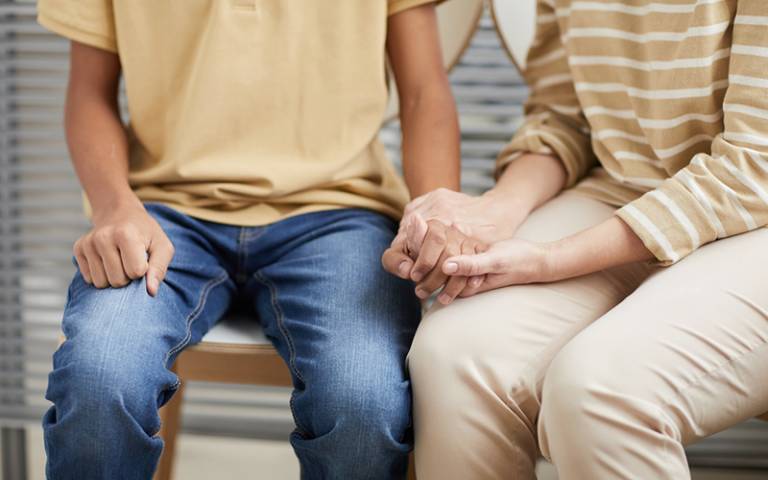Institute of Education
|
|
Children of care leavers risk inheriting parents’ emotional scars
The trauma associated with care experience casts a long shadow on mothers’ mental health and that of their children, finds new UCL research.

The researchers found that mothers who had lived in care were at greater risk of mental health difficulties than their peers who hadn’t experienced care, with their children also experiencing higher rates of psychological problems.
However, there was evidence of resilience among care leavers. Although they were more likely to experience multiple disadvantages in health, education and employment, more than a quarter of mothers who grew up in care went on to gain educational qualifications and have stable employment.
The research, supported by the Nuffield Foundation, involved mothers and their children taking part in the Millennium Cohort Study, which follows people born across the UK between 2000 and 2002. Of the more than 18,000 mothers included in the analysis, around 300 (1.7%) reported that they had lived in a children’s home or in foster care during childhood.
Lead author, Dr Sam Parsons (UCL Centre for Longitudinal Studies) yesterday said:
“This is the first UK study to show that the emotional scars associated with growing up in care are passed down through generations.
“Care leavers and their children were at greater risk of mental health problems, including symptoms of depression and anxiety. Their children also experienced higher levels of behavioural problems, self-harm and suicidal intent. But, with most care leavers suffering deep and persistent inequalities, more than a quarter beat the odds to succeed in school, at work and in family life.”
Mental health inequalities
Mothers who spent time in care were more likely to have mental health problems than those who hadn’t grown up in care:
- 45% (of mothers with care experience) v 28% (of mothers without care experience) had been diagnosed with depression by the time their child was nine months old.
Their children were also more likely than their peers to experience poor mental health, especially during mid to late adolescence:
- 21% v 10% were diagnosed with depression or anxiety,
- 38% v 26% had reported self-harming; and,
- 16% v 7% had reported self-harming with suicidal intent.
Overcoming disadvantage
Mothers who grew up in care were at much greater risk than their peers of a range of negative experiences and disadvantaged circumstances in adulthood:
- 47% v 25% lived in poverty,
- 38% v 11% had no or low level educational qualifications,
- 24% v 12% lived in a workless household,
- 14% v 6% lived with a violent partner.
However, 27% showed resilience; they had gained educational qualifications, were part of a working household, and were less likely to be living in poverty than other care leavers.
Mothers with care experience who showed resilience were more likely to have had:
- more stable foster care than other mothers who had been in care (66% v 50%), and
- gained higher qualifications at school (79% v 30%).
- After leaving care they tended to live in better housing and were more likely to be employed.
The children of these resilient mothers were more likely to get good grades at school (five or more GCSEs at grade 4-9 at 16) than the children of other care leavers (53% v 29%), doing just as well as their peers whose parents had not experienced care. However, children of resilient mothers were still more likely to report poor mental health than children whose parents had not lived in care.
Click here for the full press release
Original article link: https://www.ucl.ac.uk/news/2024/feb/children-care-leavers-risk-inheriting-parents-emotional-scars


